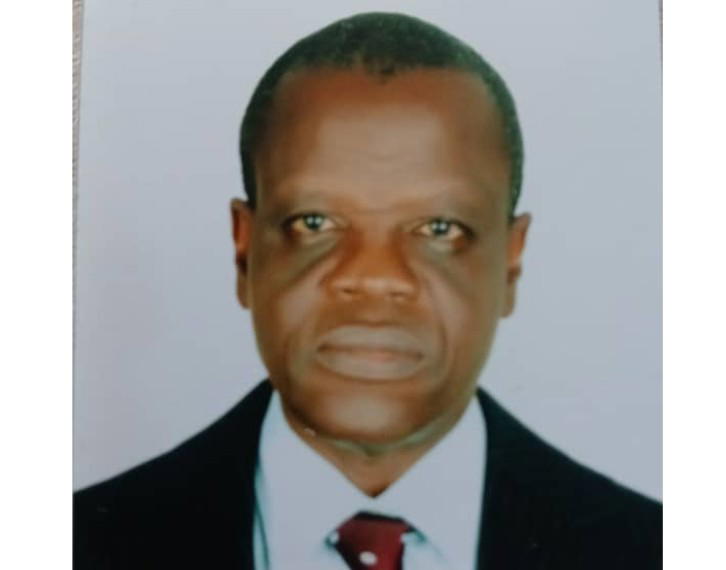NOA’s Impossible Road To Heaven, by Emmanuel Aziken

Ever since the Ibrahim Babangida administration established the National Orientation Agency, NOA, in its last days, perhaps to reorient the narrative of its tragic decision to annul the June 12 election of 1993, the agency has gone through various administrations.
Perhaps none of the heads of the agency may have succeeded as the present administration, shepherded by Mallam Lanre Issa-Onilu, in trying to reshape the negative narrative of the tragic Nigerian story as popularly phrased as “Nigeria happening to someone.”
Nigeria happening to someone in summary refers to Nigerian citizens bearing the full brunt of the failure of their government to live up to responsibility.
Just yesterday, the newspapers were filled with reports of the Nigerian Air Force striking at a mass wedding of bandits in Zamfara. While the reports may have gladdened many on the assumption that the bad guys were taken out, the fear of collateral damage with innocent victims also likely killed by their country’s military is a telling story of Nigeria happening to somebody. It is the same narrative for Leah Shaibu, abandoned by Nigeria’s government representatives after she was kidnapped along with 110 of her schoolmates in Yobe State in 2018.
How senior officials of the Buhari government could sleep knowing that they abandoned a young Nigerian girl in the hands of bandits is simply befuddling. It is the same for several Nigerians regularly being abducted, and government officials looking the other way, and sometimes going abroad on holidays!
The Issa-Onilu leadership at NOA, along with his team, has tried in recent months to reshape the story with sometimes punchy positive accounts of Nigerians benefiting from some of the good policies of the present administration. The students’ scholarship scheme, the Compressed Natural Gas (CNG conversion programme for vehicles, are among some of the stories that the NOA has sought to saturate the airwaves of the positives from the Tinubu administration.
However, the smelly negatives refuse to be deodorised. In fact, whatever the NOA is doing seems to be like a drop in the ocean in the face of scandalous government irresponsibility.
This week, your correspondent was shocked by the account of David Obiorah, one of the six law school students kidnapped on their way to the Law School in Yola, Adamawa State. They were kidnapped within Benue State on Saturday, July 26.
They were freed by their abductors penultimate Thursday after relatives and associates of the six kidnapped persons paid N10m each to the kidnappers. For the five days they were with the kidnappers, Obiorah narrated how they were daily flogged, made to drink muddy water, and generally humiliated by men in arms.
“They flogged us with tree stems. They served us rice made with palm oil. The rice resembled amala, mixed with red oil. It was horrible. We also drank muddy water,” Obiorah was quoted as telling a national newspaper.
When they were released after the payment of the N60m ransom, the spokesman of the Benue State Police command, Udeme Edet, in a statement, disclosed how the kidnap victims were RESCUED by the police.
It was an assertion Obiorah firmly rebuffed. “For the record, the Nigerian Police did not rescue us. The Nigerian Law School did not rescue us. Each of us paid N10m for our release.”
Since then, the Police have not responded to this. That is a true depiction of Nigeria happening to someone. When the state lies to cover up its irresponsibility. It is quite disheartening that despite the failure to provide the required security as enshrined by the constitution that the government would go forth to lie that it rescued kidnap victims.
Remarkably, this narrative of police rescuing kidnap victims who paid ransom for their release has become the norm. One expects the Issa-Onilu-led leadership of the NOA to redirect its energies towards such misdeeds of irresponsibility on the part of the government to really build up a positive narrative of Nigeria happening to somebody.
The psyche of those law students would be almost permanently bruised, and they would forever live with a negative connotation of Nigeria if such lies by the government are allowed to stand.
Another incident that also touched your correspondent was the account of a United States-based Nigerian businesswoman, Ms Stella Okengwu, who had invested in real estate that was eventually trespassed upon by the Lagos–Calabar expressway within Lagos State. According to her, she had mobilised many Nigerians in the diaspora to invest in the project. However, her failure to produce N200m bribe led to the officials of the Federal Ministry of Works aligning the controversial road project to pass her property. Her efforts to report the blackmail to Minister Dave Umahi, according to her, were rebuffed.
These negative realities of Nigerians smear whatever positives the administration is doing. The NOA should be interested in these and other negatives, not just in trying to look only on the positive side, as their television adverts go.
Such infractions that violate the kind of culture that the agency envisions should be interrogated to the purpose of bringing clarity as to the real meaning of Nigeria happening to someone.
Today, almost every young man is fixated with emigrating from the country simply because of these micro and macro infractions by the Nigerian state on its citizens. Young men are regularly accosted by the police and phones searched and then blackmailed because of the official arms they bear.
While the NOA continues with its work in projecting a positive narrative, the fact is that you cannot give what you don’t have. If Nigeria is good, why is it that the majority of Nigerian government officials not only have homes abroad, but also send their children abroad to school?
The post NOA’s Impossible Road To Heaven, by Emmanuel Aziken appeared first on Vanguard News.







